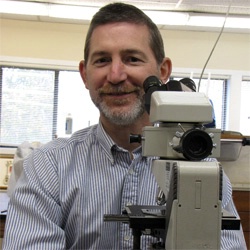 |
|
| SEARCH | LIFE IN THE PLASTISPHERE | ||||||||
|
Life in the Plastisphere - What Do We Know About Plastics in the Ocean? Presented by Dr. Erik Zettler - April 30, 2014
Much like Earth’s biosphere contains a thin layer of life on the planet, the “plastisphere” exists as the the tiny film of life located on the surface of floating plastic debris. Plastic pollution and marine debris are familiar terms in today’s society, but what that plastic is doing to the marine ecosystem is still relatively unknown. Part “myth busting”, Dr. Erik Zettler first presents us with the concept that plastics come in many forms and each plastics’ characteristics are what cause it to sink or float. He then opens up a new area of research observing the microbial communities that are beginning to inhabit this floating plastic debris. Using detailed imaging, audiences can see that there is an abundance of life on the plastisphere! Webinar Archive You can watch a video of the webinar below. Below the video is Dr. Zettler's interactive concept map so that you may follow along with the presentation. During the webinar, three poll questions are asked to gauge the audience’s prior knowledge about the presentation topic. Watch the archived video to find out the results! Concept Map This webinar features a map created by Dr. Zettler entitled, “Life In the Plastisphere: What do we know about plastics in the ocean?”. You can explore this map in the window below, or save it to your own CLIMB account by clicking on the light blue wrench in the upper left corner and selecting Copy Map to My Maps. Resources
Dr. Erik Zettler Dr. Zettler is a Professor of Oceanography and Associate Dean for the Sea Education Association, based in Woods Hole, Massachusetts. Prior to taking on his roles at SEA, he spent 9 years working as a Research Associate in the Biology Department at the Woods Hole Oceanographic Institution. Erik is also a microbial ecologist, having received his PhD in Biology/Microbial Ecology from the Autonomous University of Madrid, in Spain. He has done fieldwork in Antarctica, Bermuda, Canada, Costa Rica, Portugal, Spain, and the US and tries to teach in the field as much as possible: including on-board SEA vessels in both the Atlantic and Pacific Oceans.Sea Education Association |
|
|||||||






